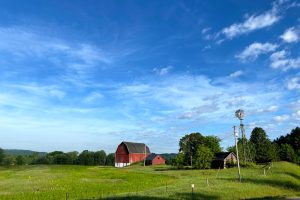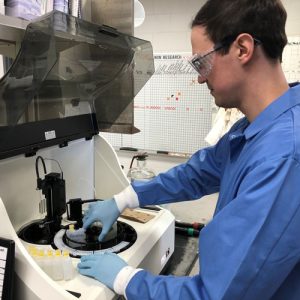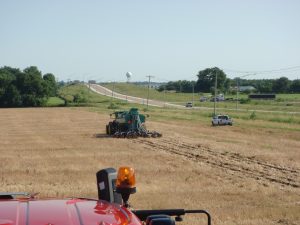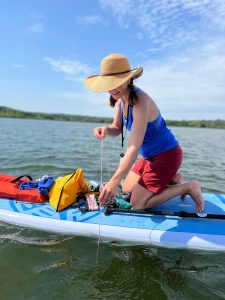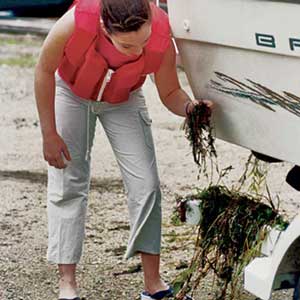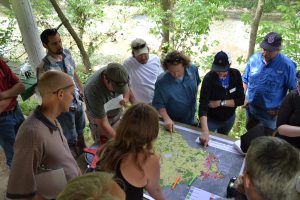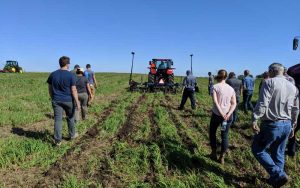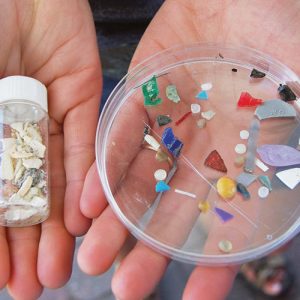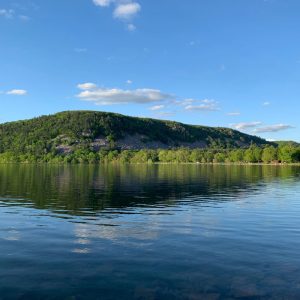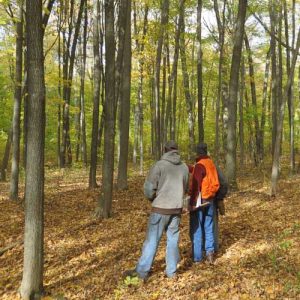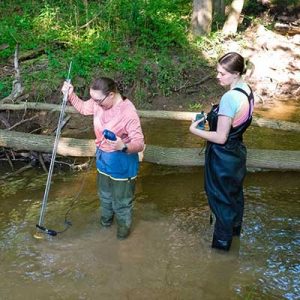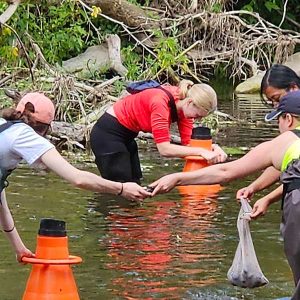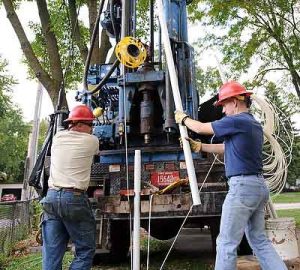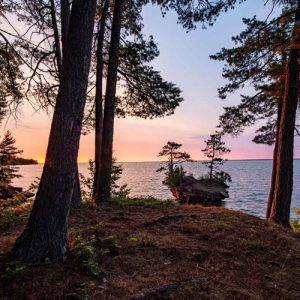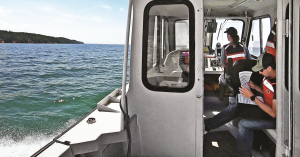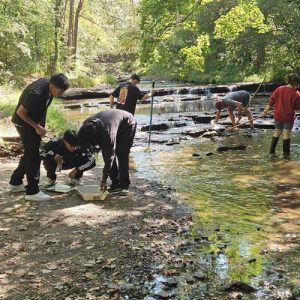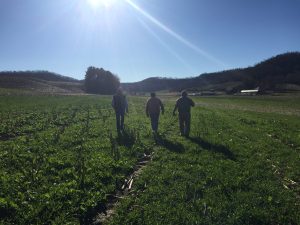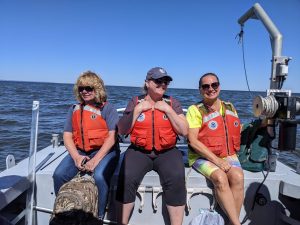Programs
Natural Resources Institute Programs
Discover our programs working to provide the information and leadership needed to grow healthy,
thriving communities and support resilient, productive natural resources, food systems, and economies.
Center for Land Use Education
The Center for Land Use Education (CLUE) is a collaborative center based at UW-Stevens Point providing land use planning and management education. Through applied research, teaching, outreach, and spatial analysis, CLUE supports local government officials, communities, organizations, and students to make informed land use decisions.
Center for Watershed Science and Education
The Center for Watershed Science and Education helps individuals, organizations, and private and public water resources professionals understand water quality and quantity in private wells, groundwater, lakes, and rivers. Center staff provide guidance on sampling and data collection, education on water quantity and quality, and interpretation and evaluation of monitoring results.
Central Sands Groundwater County Collaborative
Adams, Juneau, Marquette, Portage, Waushara, and Wood Counties collaborate to discuss concerns over groundwater quality issues in the Central Sands and address current and emerging human and environmental health challenges of groundwater management in this region.
Citizen Lake Monitoring Network
The Citizen Lake Monitoring Network creates a bond between 1,000+ citizen volunteers statewide and the Wisconsin Lakes Partnership. The program collects high-quality lake monitoring data, educates and empowers volunteers, and shares data to inform lake management. Staff provide volunteers with the equipment and training to conduct these monitoring activities and volunteers provide their time and expertise.
Clean Boats, Clean Waters
The Clean Boats, Clean Waters watercraft inspection program gives participants the opportunity to take a frontline defense against the spread of aquatic invasive species. Through the Clean Boats, Clean Waters program, participants are trained to organize and conduct a boater education program in their communities.
The Confluence for Watershed Leaders
The Confluence for Watershed Leaders is a community and collaborative of people working for healthy watersheds in the Great Lakes, Greater Mississippi River, and Red River basins of the U.S. Midwest and Mid-South. It is where watershed professionals and engaged farmers and landowners can connect, learn, and increase their success in achieving clean water goals.
Conservation Professional Training Program
The Conservation Professional Training program has developed a portfolio of 50+ conservation courses in online, classroom, field, and hybrid formats. Working in collaboration with partners, the program offers full-service curriculum and course development and delivery on topics like conservation planning, nutrient management, soil health, forestry, and more.
Emerging Contaminant Outreach
When new hazardous materials are discovered in our water, air, and soil, they present unique challenges when it comes to protecting our natural resources and ourselves. We are dedicated to increasing access to information about emerging contaminants and collaborating with partners to foster better understanding of emerging contaminants in Wisconsin.
Extension Lakes
Based at UW–Stevens Point, the Extension Lakes Program seeks to preserve Wisconsin’s legacy of lakes through education, communication, and collaboration. The program works with more than 800 local lake associations and lake districts in Wisconsin, assisting them through education and capacity building.
Forestry Natural Resource Educators
Extension Forestry Natural Resource Educators lead classes and build programs to engage landowners in the sustainable management of Wisconsin’s privately owned forests. Signature programs include Learn About Your Land; Women Owning Woodlands; Your Land, Your Legacy; Agroforestry; Maple Syrup; Climate Resilience; and the Wisconsin Stewardship Plan Project.
Freshwater Educator Network
The UW-Green Bay Freshwater Educator Network brings immersive field experiences to life for K-12 educators in the 16-county region connected to the Bay of Green Bay. This program gets students and teachers out on the water and into the landscape, making learning exciting and impactful.
Freshwater Scholars Program
The UW-Green Bay Freshwater Scholars Program is a summer-long adventure letting high school students build professional skills before college by diving into water science research with a mentor, focusing on a project for the summer, and experiencing water science careers through field trips like helping to restore Cat Island.
Groundwater-Level Monitoring Network
The Wisconsin Groundwater-Level Monitoring Network consists of roughly 100 long-term monitoring wells, plus dozens of project-funded wells that are monitored for specific groundwater studies. The network provides a consistent, high-quality record of water-level fluctuations in both shallow and deep aquifers across the state.
Lake Superior Collaborative
The Lake Superior Collaborative is a network of organizations working in partnership to coordinate protection, restoration, and climate resilience efforts in the Wisconsin portion of the Lake Superior watershed. The collaborative is coordinated by Extension and is composed of local governments; state, Tribal, and federal government agencies; academic institutions; and nonprofit organizations.
Lake Superior National Estuarine Research Reserve
The Lake Superior Reserve is part of the National Estuarine Research Reserve System dedicated to protecting and studying coastal ecosystems in collaboration with and service to the surrounding community. The Reserve is dedicated to research, education, outreach, and stewardship along Lake Superior’s coast.
Lower Fox River Monitoring Program
Through the UW-Green Bay Lower Fox River Monitoring Program, a network of teachers and students from high schools in Northeast Wisconsin collaborate with university scientists to monitor seven environmentally impaired streams in the Fox River watershed for water quality and ecological health.
One Good Idea
This collaborative program is a clearinghouse of videos and podcasts that feature farmers’ ideas and experiences with practices that help them improve their soil, land, and bottom lines – such as cover crops, no or low till, rotational grazing, and buffer strips, to name a few.
Rivers2Lake
Rivers2Lake uses the Lake Superior watershed and the St. Louis River estuary as a foundation for educator and student learning, increased Great Lakes literacy, and engagement. The program provides extended training, mentoring, and resources to teachers in order to support them in creating interdisciplinary inquiry-based and outdoor experiences for students.

